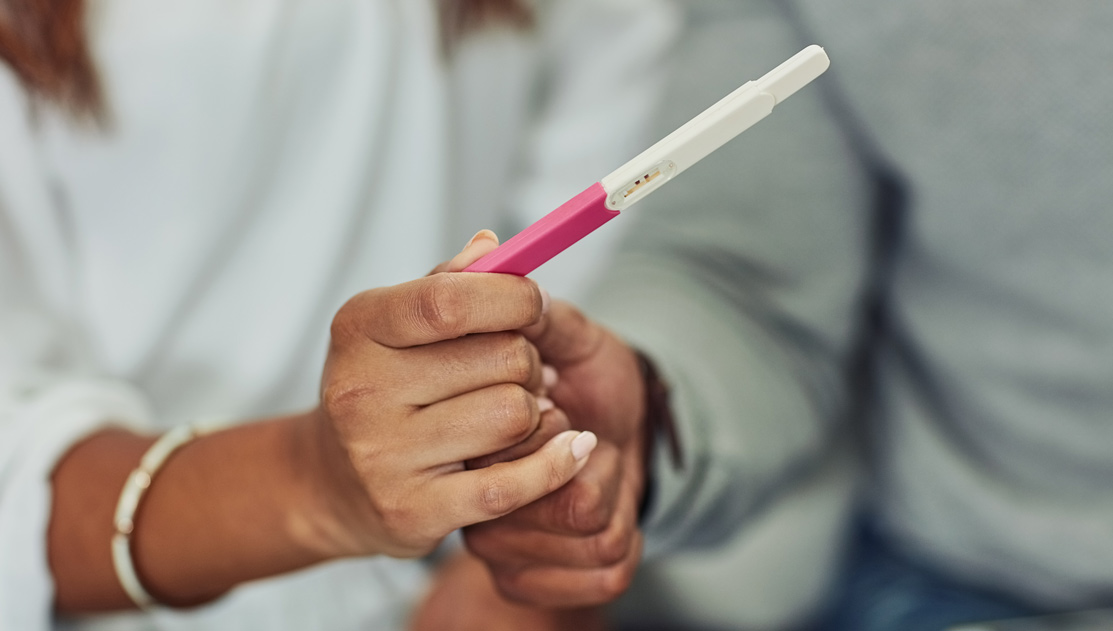Have you been trying to conceive for a while? Considering seeking fertility treatment but wondering do you really need IVF? While IVF is by far the most well-known fertility treatment, it is certainly not the only one and it may not be the right option for every couple. So if you think you might need help to conceive, what are your options and do you really need IVF? Read on and we explain.
First things first: What is IVF and who is it for?
In-vitro fertilisation (IVF) is a process whereby a woman’s eggs are retrieved from her womb under sedation, before being fertilised in a lab (‘in-vitro’) using either her partner’s or a donor’s sperm.
Most often, a woman’s eggs are retrieved from her ovaries following a period of ‘controlled ovarian stimulation’. This is when the woman’s ovaries are stimulated with fertility drugs to produce more eggs than the usual one per natural cycle, in order to give her the best chance of success.
After the eggs are fertilised with sperm, the embryos are monitored for a few days in the lab before the best one/s are selected and placed back into the woman’s uterus to grow and develop.
IVF may be recommended if you have problems such as: damaged or blocked fallopian tubes, low sperm count, low sperm motility, other sperm abnormalities such as size and shape, endometriosis, ovulation disorders, and/or age-related fertility decline, and sometimes in unexplained infertility.
Within the scope of IVF, there are many different ways an expert fertility doctor may tweak the process to try to secure the best outcome for you. For example, if your partner has sperm motility issues, Intracytoplasmic Sperm iInjection (ICSI) may be advised – this is when sperm is injected directly into the egg. It is also recommended in cases of previous poor egg fertilisation in a previous conventional IVF cycle.
Do you really need IVF: what other treatments might you consider?
Do you really need IVF? Depending on the cause of their fertility issues, some couples will try other (often cheaper and less invasive) fertility treatments first. These include:
Fertility medicines for women and men
There are various fertility medications that can be used to induce a woman to ovulate (release a mature egg). These are often advisable for women with disorders that disrupt or prevent ovulation, such as polycystic ovarian syndrome (PCOS). These drugs can also assist in boosting male fertility, for example by stimulating hormones such as follicle stimulating hormone (FSH) and luteinising hormone (LH) to help increase sperm production.
Fertility medicines alone are less effective than IVF, but they are non-invasive and far cheaper – so some couples try medicines alone first, particularly if they are younger and less concerned about the ticking of their biological clocks.
Intrauterine insemination (IUI)
Intrauterine insemination (IUI), often referred to as artificial insemination, is an assisted conception technique in which sperm that has been specially washed is placed into a woman’s womb at her time of ovulation, to help conception. IUI can be performed either with or without the aid of fertility drugs. You have a better chance of pregnancy with fertility drugs but your chance of multiple births is also elevated.
Many couples that choose IUI do so because it is less invasive and cheaper. Generally speaking, IUI is about a third of the cost of IVF. However, the success rates are only about a third as high as IVF’s. So it comes down to what feels right for you as a couple (or single woman). A good fertility doctor can help you to weigh the options.
Surgical fertility assistance
Elite fertility clinics can do a lot more than just basic IVF. And providing you have comprehensive fertility testing to determine what your specific issues actually are, you may be presented with a range of options to choose from.
For instance, if you have endometriosis you may want to consider surgery to remove cysts. If you have polycystic ovarian syndrome (PCOS), ovarian drilling (a surgery that can induce ovulation) may be beneficial. Blocked fallopian tubes can sometimes benefit from surgery.
If a man has an obstruction blocking the passage of his sperm resulting in semen without sperm, some fertility clinics can offer surgery to extract his sperm.
Here at The Fertility and Gynaecology Academy we can perform all these procedures. But plainly speaking, surgery is not always the best option, and it may serve your time and funds better to opt straight for IVF. A quality fertility clinic can provide exacting testing and honest consultation so that you can determine what is best for you.
Reproductive immunology
A woman’s immune system and her reproductive system have an intricate relationship that science is still working to understand. Your immune system defends you against foreign cells, attacking aggressors like viruses and even your own cells if they become dangerous. Pregnancy is therefore something of a biological conundrum: your immune system must at once protect the growing embryo from foreign invaders like viruses and infections that could threaten it, whilst not attacking the growing embryo itself (which is around half-composed of foreign cells). For embryo implantation and pregnancy to succeed, this foreign tissue must be protected, and not rejected. So early pregnancy can be a hazardous time.
Some women have issues with their immune system that are affecting their reproductive system, resulting in problems getting pregnant and/or staying pregnant. This might be a known autoimmune disorder like lupus, or an undiagnosed immune issue. Immune issues in women frequently go undiagnosed, and they tend to occur most often in reproductive years.
Men can also suffer autoimmune-related fertility issues. For instance, some men develop anti-sperm antibodies after an injury to their testicles (such as an infection or a biopsy).
Here at The Fertility and Gynaecology Academy, as specialists in testing and treating immune issues for fertility, we frequently successfully treat people who were unaware they had problems with their immune system until they had trouble getting or staying pregnant. You can read the HFEA view on reproductive immunology here.
So, if you’ve been struggling to conceive do you really need IVF?
Dr Amin Gorgy, Fertility Consultant at The Fertility and Gynaecology Academy says: “It always depends. For instance if you’re young and have an ovulation problem, you may wish to try ovulation medications first – but if you’re in your late thirties and aware that time is ticking on, you may decide to go straight to IVF. And there are some fertility problems for which only IVF can do the trick. So you can only really answer that question after comprehensive testing and consultation with a good fertility doctor. They can lay out what the problem actually is and your options for tackling it.”
Been trying for a baby for a while? Want to look at your options for fertility treatments or testing? To get one step closer to your goal, call The Fertility and Gynaecology Academy now on 020 7224 1880 or email info@fertility-academy.co.uk.







